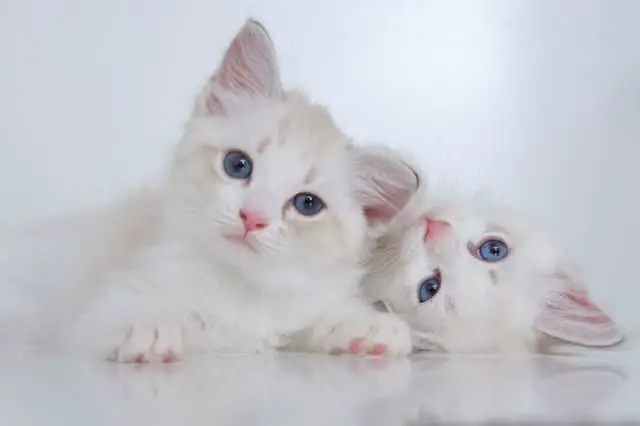
How to spend a summer with your cat that is safe, cheerful and unforgettable? By being alert to the most common dangers of outdoor living and protecting your cat.
Summer arrives, the hottest months arrive. Temperatures rise, and habits change: we live more outdoors, there is more free time, maybe we have more opportunities to live our sociability. What about our pets instead? As for us humans – or at least for many of us – the summer months can be stressful for cats. On the other hand, they too suffer from the heat. And the heat itself can make these months uncomfortable, and cats can easily be stressed by changes in routine, and by the increase in domestic visitors. Whether he is young or old, short-haired or long-haired, there are various things to pay attention to in order to spend a nice summer with your cat, safe and without problems.
The most common summer dangers for cats
If we live the summer with the cat we have chosen as a life partner, the summer dangers to watch out for (at least the most common) are: heat stroke, dehydration and the skyscraper syndrome. Here is a list of possible symptoms, if we notice any of them we must contact our vet as soon as possible.
- Heat stroke. Cats only sweat through their feet, so they can have a hard time cooling off. If their core body temperature rises too much, they can suffer from heat stroke. Symptoms include wheezing, wobbly walking, very red gums, restlessness and / or vomiting. If any of these signs arise, we should take our cat to the vet as soon as possible.
- Dehydration. Cats have a natural propensity to drink little water, so dehydration is a big risk in the summer. Symptoms of this condition include: loss of appetite, lethargy, elevated heart rate, dry mouth, depression, sunken eyes, less elastic skin, wheezing. We try to make our cat drink the necessary amount of water every day.
- Skyscraper Syndrome. Named because it commonly occurs in apartment-dwelling cats, skyscraper syndrome is a phenomenon whereby a cat suffers injury after jumping or falling from a considerable height. There is usually an increased incidence of high-rise syndrome in the summer, due to the number of windows left open and unshielded balconies. And even though 90% of cats survive such a fall, they can suffer quite severe injuries. We try to give our cat its space at the window, without putting it in dangerous conditions.
How to protect our cat in the summer
All cats, both those who live inside a home and those who live outside, need to stay cool and hydrated in the summer months. It is important to create a space at home that lends itself to the needs of the cat. In fact, the cat will be the one to look for a little fresh when he needs it, just organize ourselves a little to give him everything he needs.
- Provide fresh water. During the summer, it is important that our cat has unlimited access to fresh water. Cat drinking fountains can be a great solution, as they provide fresh filtered water, similar to tap water. We can also put some ice cubes in the bowl, to keep the water fresh longer. However, we must pay attention to any problems in the opposite case, if the cat also drinks too much water.
- Let’s create a cooling zone. Cats naturally gravitate to the most comfortable sleeping area they can find. We can create a refreshing bed by placing a package of frozen vegetables (peas, for example, more “comfortable”) under a blanket or bedspread for the cat.
- We keep the cat cool by wetting it. On very hot days, cats can also overheat too much. We clean the cat with a towel or even a fresh and damp cloth, at intervals of two hours; the humidity will act as a kind of “wall” for sweat. It will be a way to keep it cool without bothering it too much, as we would do with a real bathroom.
- We keep the windows on the upper floors closed. To prevent the skyscraper syndrome, let’s make sure that our furry friend does not have access to windows or balconies on any upper floors. If there are windows, we install mosquito nets safely to prevent escapes and accidental falls.
How to behave in the summer with the cat that lives outdoors

Because they spend a lot of time outdoors and outside the home, cats that live outside are more at risk for summer injuries and illnesses than their peers who live indoors. Precisely for this reason, we must behave even more carefully to prevent any kind of problem that can arise in the summer.
- Prevent sunburn. Just like humans, cats can get sunburn, especially those with light fur and pink noses. On very hot days, we apply a cat sunscreen (we can ask our vet for more information) on the tips of the ears and on the top of the head.
- Let’s check our cat’s paws. Paths, courtyards, streets, and sand can get extremely hot in the summer. If a surface is too hot to walk on, it is not suitable for our cat. We must therefore regularly check the paws of our pet, to make sure that they have not been burned.
- Let’s create a safe garden for cats. Some garden fertilizers, snail pellets, and many plants (like lilies, for example) are all poisonous to cats. If our fluffy dog goes out a lot, let’s try to use cat-safe garden products. Catnip gardens are another great way to distract your cat from other plants.
- Provide some shade. Make sure you have a shaded and comfortable outdoor area, including a cat bed or mat where your cat can be comfortable and cool.
- Parasites. During the summer, ticks, fleas, mosquitoes, flies and other insects are at the peak of their spread . It is a good idea to protect our cat from parasites even before the summer heat begins.






